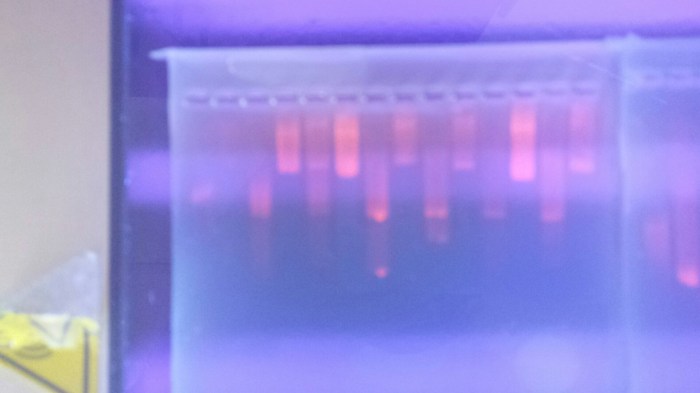Embark on an intellectual journey with the AP Biology Chapter 8 Reading Guide Answer Key, a comprehensive guide that illuminates the intricacies of cell division. Delve into the mechanisms that govern the cell cycle, unravel the causes of cancer, and explore the significance of meiosis in genetic variation.
Prepare to expand your knowledge and conquer the complexities of cell biology with this invaluable resource.
Unveiling the mysteries of cell division, this guide provides a roadmap to understanding the fundamental processes that shape life. Discover the checkpoints that regulate cell growth, the role of cyclins and CDKs in cell cycle progression, and how external signals and internal factors influence cell division.
Gain insights into the causes of cancer and the genetic mutations that drive its development. Explore the process of meiosis and its crucial role in maintaining genetic diversity within populations.
Chapter Overview
Chapter 8 of AP Biology explores the fundamental processes of cell division, encompassing the cell cycle, mitosis, meiosis, and their implications in cell growth, development, and genetic variation. Understanding these processes is crucial for comprehending the basic mechanisms that govern the growth, development, and health of all living organisms.
Cell Cycle Regulation: Ap Biology Chapter 8 Reading Guide Answer Key
The cell cycle is a tightly regulated process consisting of distinct phases: G1, S, G2, and M. Key checkpoints, such as the G1/S checkpoint and the G2/M checkpoint, ensure proper cell growth, DNA replication, and repair before cell division proceeds.
Cyclins and cyclin-dependent kinases (CDKs) play a central role in coordinating these transitions.
External and Internal Factors Influencing Cell Cycle Regulation
- Growth factors and nutrients
- DNA damage
- Cell density
Cancer and Cell Cycle Dysregulation
Cancer arises from uncontrolled cell division due to dysregulation of the cell cycle. Mutations in genes encoding cell cycle regulators, such as tumor suppressors (e.g., p53) and oncogenes (e.g., Ras), can lead to uncontrolled cell growth and tumor formation.
Types of Cancer and Genetic Mutations
- Lung cancer (mutations in KRAS, EGFR)
- Breast cancer (mutations in BRCA1, BRCA2)
- Colon cancer (mutations in APC, TP53)
Uncontrolled Cell Division in Tumor Growth and Metastasis
Uncontrolled cell division contributes to tumor growth by increasing cell mass and facilitating metastasis, the spread of cancer cells to distant sites.
Meiosis and Genetic Variation

Meiosis is a specialized form of cell division that occurs in reproductive cells and results in the production of haploid gametes (eggs and sperm). During meiosis, genetic recombination occurs, leading to genetic variation within populations.
Genetic Recombination During Meiosis
- Crossing over
- Independent assortment of chromosomes
Role of Meiosis in Genetic Diversity
Meiosis shuffles genetic material and introduces new combinations of alleles, increasing genetic diversity and providing the raw material for natural selection.
Mitosis and Cytokinesis
Mitosis is the process of nuclear division that results in two genetically identical daughter cells. Cytokinesis, the division of the cytoplasm, follows mitosis to complete cell division.
Stages of Mitosis
- Prophase
- Metaphase
- Anaphase
- Telophase
Importance of Mitosis
- Growth and development
- Tissue repair
- Asexual reproduction
Errors in Mitosis and Genetic Abnormalities
Errors in mitosis can lead to genetic abnormalities, such as aneuploidy (abnormal chromosome number) and chromosomal rearrangements.
Cell Division Applications
Cell division has numerous practical applications in biotechnology and medicine.
Cloning
Cloning involves creating genetically identical copies of an organism or cell.
Stem Cell Research
Stem cells have the ability to differentiate into various cell types, making them valuable for regenerative medicine.
Genetic Engineering, Ap biology chapter 8 reading guide answer key
Genetic engineering involves manipulating the genetic material of organisms to create desired traits.
Cell Division Research and Human Health
Research on cell division has advanced our understanding of human health and disease, including cancer, developmental disorders, and genetic syndromes.
FAQ Overview
What are the key checkpoints in the cell cycle?
The key checkpoints in the cell cycle are the G1/S checkpoint, the G2/M checkpoint, and the M checkpoint.
How do cyclins and cyclin-dependent kinases (CDKs) regulate cell cycle progression?
Cyclins and CDKs form complexes that phosphorylate target proteins, which drives cell cycle progression.
What are the different types of cancer and their associated genetic mutations?
There are many different types of cancer, each with its own associated genetic mutations. Some common types of cancer include lung cancer, breast cancer, and colon cancer.